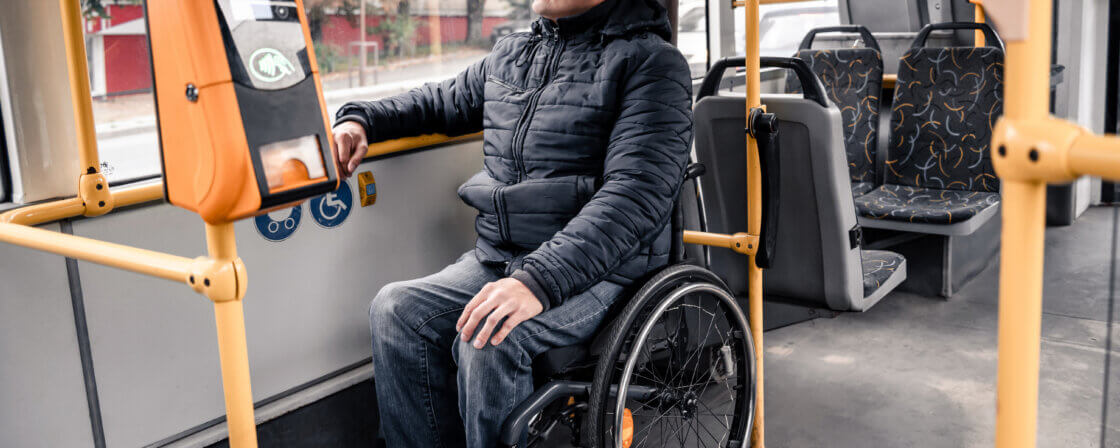What is OZP?
Let’s start from the very beginning. The acronym PWD stands for person with disabilities. This is a fairly broad term that covers a range of situations – from people with physical disabilities to people with chronic illness or mental disorders. Sometimes it is a visible disability, other times it is an ‘invisible’ one, but it is equally limiting.
The Employment Act defines a PWD as a person who has a physical, sensory, mental or intellectual disability that limits them in their normal life or work.
Disabled, disabled/PWD and disabled/PT
When people say “PWD card”, they mean a document that confirms that a person falls into a certain category of disability. There are several types of cards:
- TP card – called more severe disability.
- Disabilitycard – a particularly severe disability.
- ZTP/P card – a particularly severe disability with the need for a guide.
ZTP literally stands for “particularly severe disability”. And you already know what PWD stands for – a person with a disability. Each of these IDs comes with certain benefits, which we’ll look at in the next sections of this article.
Are you solving a similar problem?
We can help you with your appeal
Have you been refused a disabled person’s card or a disabled person’s PIC and you know you are entitled to it? Don’t underestimate the importance of a properly filed appeal. We will help you in dealing with the assessment boards and prepare a good argument and all the supporting documents.
More informationProviding a TP card - the benefitsThe benefits of a TP card are not negligible, even though it is the lowest level of recognised disability. For example, the holder of a TP card is entitled to:Priority in dealing with the authorities or the doctor.Discounts on cultural events, entrance fees or transport (although usually less than for disabled people).The possibility of applying for benefits for compensatory aids (e.g. hearing aids).Even if the TP card does not allow parking in designated spaces, it is still better than nothing.Disability benefits: this is where it gets interestingGetting a Disability Benefit Card (i.e. a card for people with severe disabilities) is certainly not a simple or quick process. Once you've been awarded one by the Medical Assessment Service, you're entitled to a range of concessions and benefits to help offset other limitations. And these are no small things, they can save you money, make it easier to get around and get everyday things done.Parking in spaces reserved for disabled peopleWho doesn't know the typical blue signs with a picture of a wheelchair user? If you have a Disabled Persons' Permit, you are automatically entitled to a special vehicle marking (parking permit) that entitles you to park in spaces reserved for disabled persons. Not only that, in some cases you can park where parking is otherwise prohibited (for example in a pedestrian zone or at a no-stopping zone), but there is always a condition that you do not endanger traffic or safety. So with a disabled person's licence, you can get closer to the door in your car - literally.Exemption from the vignetteAnyone who drives on the motorway often knows that the vignette is not exactly the cheapest thing to buy, costing thousands of crowns a year. But it is holders of a disabled or disabled/P (especially severely disabled with the need for a guide) who can get an exemption from paying the vignette. This exemption applies to a vehicle that is used to transport a person with this licence, so it does not have to be directly owned by you. However, it is a condition that the vehicle must display a disabled person's parking permit, i.e. one with a pictogram and a permit number.
- When you order, you know what you will get and how much it will cost.
- We handle everything online or in person at one of our 6 offices.
- We handle 8 out of 10 requests within 2 working days.
- We have specialists for every field of law.
Tip for article
Tip: In which cases and to what extent will the state protect you under social security? Find out what you are entitled to.
Discount on public transport fares
Don’t have a car? No problem. The Disabled Persons Pass also gives you an advantage on public transport. With a ZTP or ZTP/P card, you are entitled to a discount on fares on trains, buses and public transport. The discount on trains is 75%. Transport on regular local public passenger transport (trams, trolleybuses, buses, metro) is free of charge. In addition, ZTP/P card holders can be accompanied for free, which means that the person helping you travel pays nothing at all.
Mobility allowance – 900 CZK per month
Another interesting form of assistance for people with disabilities is the mobility allowance. This is given to those who have mobility problems and who regularly use transport (either their own car or someone else’s).
The amount of the allowance is CZK 900 per month and you can apply for this amount at the Job Centre. Of course, you have to meet a few conditions (for example, you must have a ZTP or ZTP/P card and be a person who transports themselves at least ten times a month).
Free or heavily subsidised aids
For people with disabilities, some normal activities are more difficult, which is why the state allows you to apply for compensatory aids. This could be a wheelchair, a reclining bed, hearing aids, special household equipment or even a contribution towards a wheelchair accessible home or car. Holders of a ZTP or ZTP/P card have a higher chance of obtaining these aids and a significant co-payment from the state. In some cases the aid is completely free, in others you pay only a small part of the price.
When you need a guide
The ZTP/P card, a particularly severe disability requiring a guide, is a kind of extended version of the regular ZTP card. While the ZTP means you have a severe disability, the addition of the “/P” means that you need a second person to help you to function in life, someone to help you move around, communicate, find your way around or cope with everyday situations. And the state knows this. And so, in addition to all the usual benefits of having a disabled person’s card, you have something extra as a disabled person/P holder.
The guide travels for free – and so do you
One of the most significant benefits of the ZTP/P card is the right to travel with an escort completely free of charge. What does this mean in practice? As a ZTP/P holder, you are entitled to a discount or a free ticket (depending on the carrier). Your guide is entitled to free travel. This applies to most public transport, long-distance buses and trains. Czech Railways, for example, has a clear rule: a disabled person travels at a discount and his/her companion travels for free if he/she is registered on the card. This rule is not only about financial savings (although the savings are noticeable), but mainly about making everyday life easier – knowing that someone can go with you to help you and it doesn’t cost extra.
Free accompaniment to cultural, sporting or social events
Imagine you want to go to the theatre, a concert or even a football match. But you know you can’t get there on your own, you can’t find your way around the venue or you need help getting in and sitting down. Now imagine that in addition to the ticket for you, you have to pay another full price for an escort. Expensive trip, right? Fortunately, for disabled pass holders, this doesn’t apply. Many cultural institutions, sports venues or event organisers provide reduced admission or completely free admission for the person with a ZTP/P card and free admission for the guide.
Although this is not a legal obligation, it works very often in practice. Theatres, cinemas, festivals, exhibitions and sporting events are aware that people with disabilities also have a right to cultural life and do their best to facilitate their participation as much as possible. It is always a good idea to check the conditions of a particular event or organiser beforehand; in some places you just need to show your ID, in others you need to book a ticket in advance.
Tip for article
Tip: How to know a safe camp? What if something goes wrong at camp – for example, a child gets sick, suffers an injury or the organiser doesn’t deliver on the promised programme? Here is a practical legal guide.
Personal assistance or care allowance
The disability that requires a guide is usually so severe that it affects most areas of life, not just travel or cultural activities. Help is often needed at home, with hygiene, dressing, food preparation or communication.
For these situations, it is possible to apply for care allowances (financial support to pay for an assistant, carer or family member to help you) and social services (the state or municipality may also provide specific assistance, care services or help with shopping or cleaning). The amount of the allowance depends on the level of dependency, i.e. how much help you need.
Disabled person
And now for a slightly different league: a person with a disability, or PWD. What does this mean? This is not a disabled person or a person with a disability, but a person whose health has limited their ability to work, but not enough to qualify for one of the above-mentioned cards. Disability status is granted by the Labour Office on the basis of an assessment.
Benefits for a person with a disability include, in particular:
- Increased protection in the labour market – employers cannot dismiss you so easily.
- Employers have an incentive to employ you because they receive benefits for doing so.
- The opportunity to work in a sheltered work environment.
From a legal perspective, this makes PWDs part of the group of people with a reduced capacity to work. Previously, the term OSP was used – person with reduced working capacity. Today, this has been replaced by the status of PWD or disability. Altered capacity for work thus remains in the terminology mainly as a historical concept, but sometimes it still appears in documents or applications.
Degrees of disability
The degree of disability is decisive for the award of a PWD card:
- Mild disability – usually no entitlement to a card.
- Moderate disability – possible award of TP or PWD.
- Severe disability – disability with a disability with a disability with a disability with a disability with a disability with a disability with a disability with a disability.
The assessment is carried out by the Medical Assessment Service of the Czech Social Security Administration. It is important to provide the correct medical reports and recommendations.
To get a ZTP, TP or ZTP/P card, you need to fill in an application form at the Labour Office (Social Benefits Department), provide medical reports and documentation and wait for the assessment of your condition – the medical assessment service may even call you personally. If you are not granted a card, you have the right to appeal. It is not unusual for the decision to be reversed on appeal.
Whether you are a disabled person with a card, are just considering applying for one, or are an employer thinking about how to help and get your benefits right at the same time, it pays to know the benefits and entitlements system for disabled people.
Summary
People with disabilities (PWD) in the Czech Republic can obtain a TP, ZTP or ZTP/P card, which confirms the extent of their disability and brings various benefits. The TP card provides basic benefits such as priority processing at the authorities, discounts on entrance fees and the possibility to apply for aids. The Disabled Persons’ Pass already provides more significant benefits – parking in designated spaces, exemption from the motorway vignette, significant discounts on transport, mobility allowance (900 CZK per month) and entitlement to compensatory aids. The most extensive support is offered by the ZTP/P card (especially severe disability with the need for a guide), which, in addition to all the benefits of the ZTP, also provides free travel for the accompanying person and often free admission to cultural or sporting events. These cards make everyday life easier for PWDs and their relatives.




